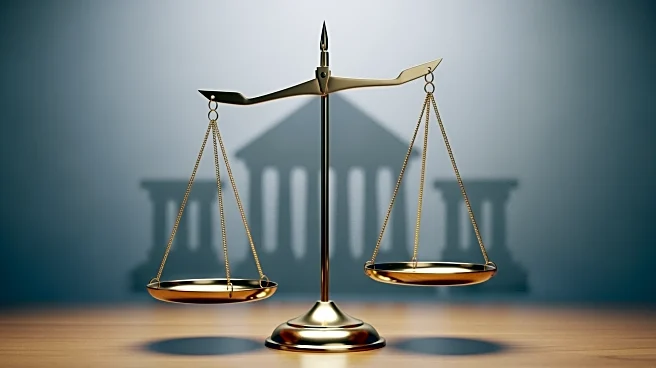What's Happening?
The U.S. Supreme Court is set to hear arguments regarding the legality of tariffs imposed by President Trump under the International Emergency Economic Powers Act (IEEPA). Treasury Secretary Scott Bessent
will attend the hearing, emphasizing its importance to the Trump administration's economic and foreign policy. The case questions whether President Trump overstepped federal law by using IEEPA to implement broad import taxes. Lower courts previously ruled that the president lacked the authority to set these tariffs, but allowed them to remain in place pending the Supreme Court's decision.
Why It's Important?
The outcome of this case could have significant implications for U.S. trade policy and the executive branch's power in economic matters. A ruling against the Trump administration might limit the president's ability to unilaterally impose tariffs, potentially affecting international trade relations and economic strategies. This case also underscores the ongoing debate over the balance of power between the executive branch and Congress in setting trade policies. Businesses and industries reliant on imports could be directly impacted by the court's decision, influencing market stability and economic planning.
What's Next?
If the Supreme Court rules against the Trump administration, it could lead to a reevaluation of current tariffs and prompt legislative action to clarify the scope of presidential powers under IEEPA. The administration has indicated that alternative measures are in place should the court's decision not be favorable. The ruling could also prompt reactions from international trade partners and influence future trade negotiations.











